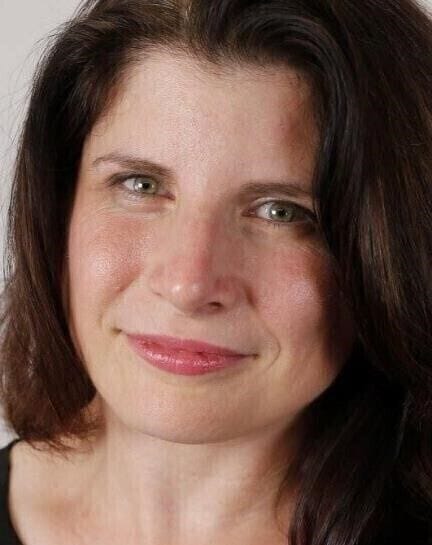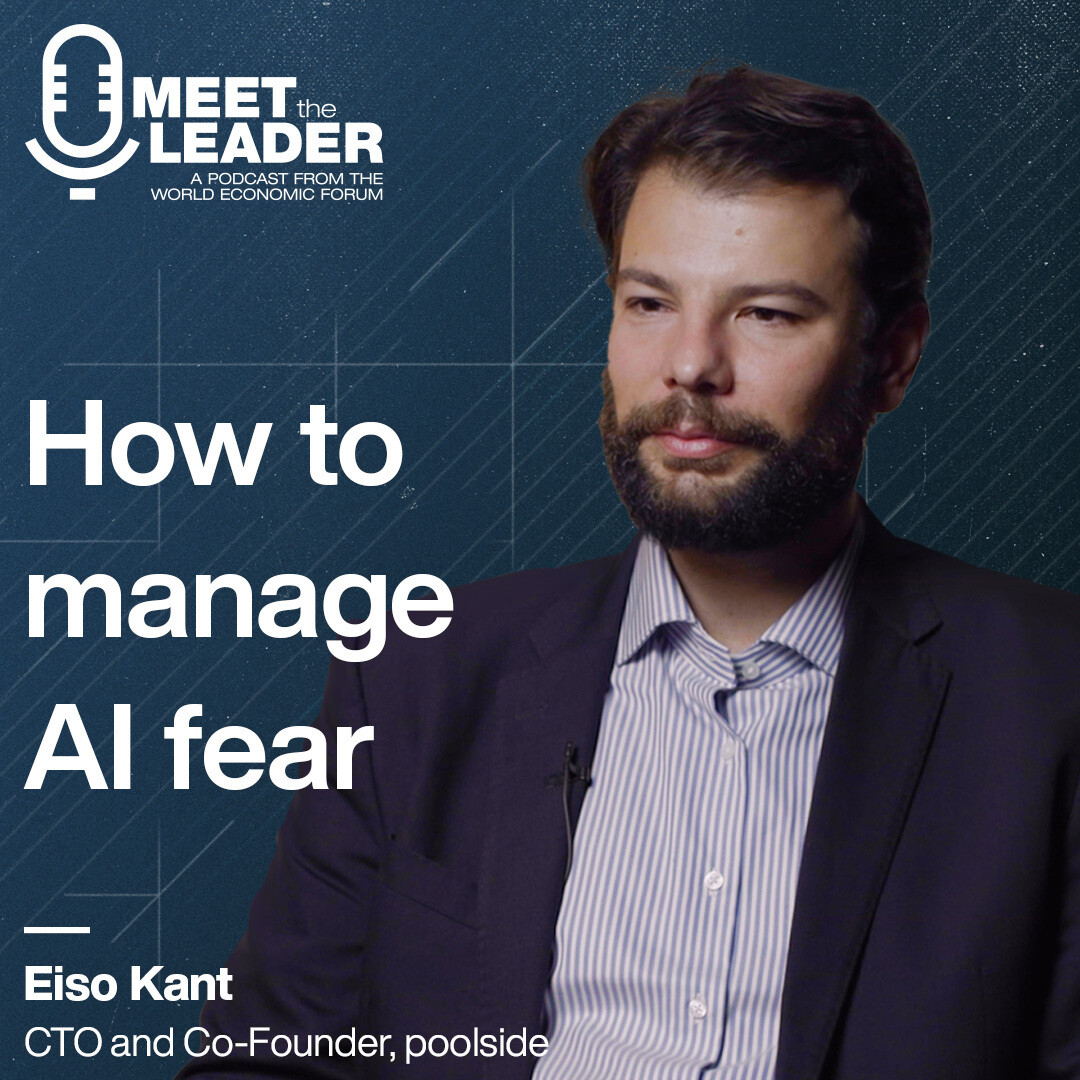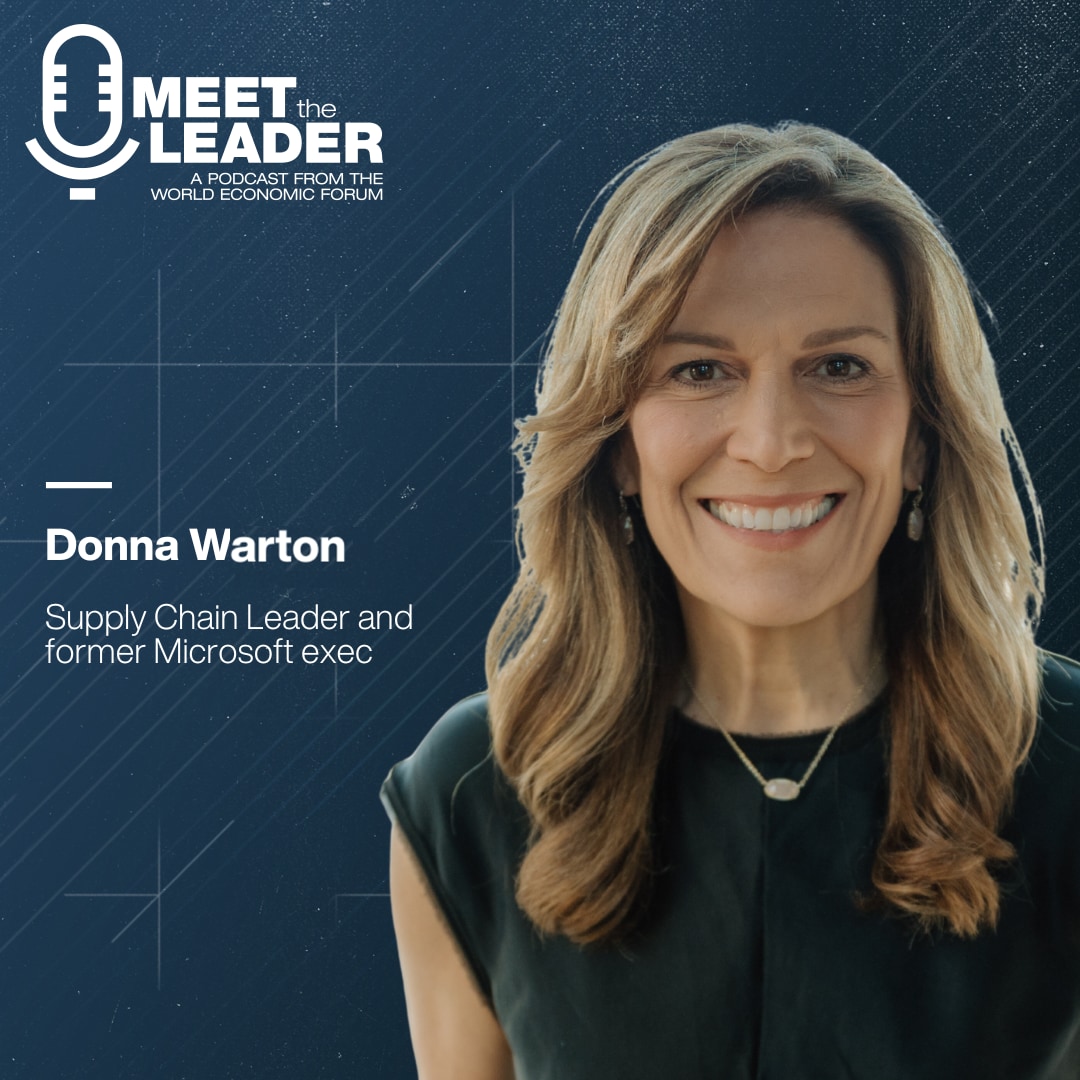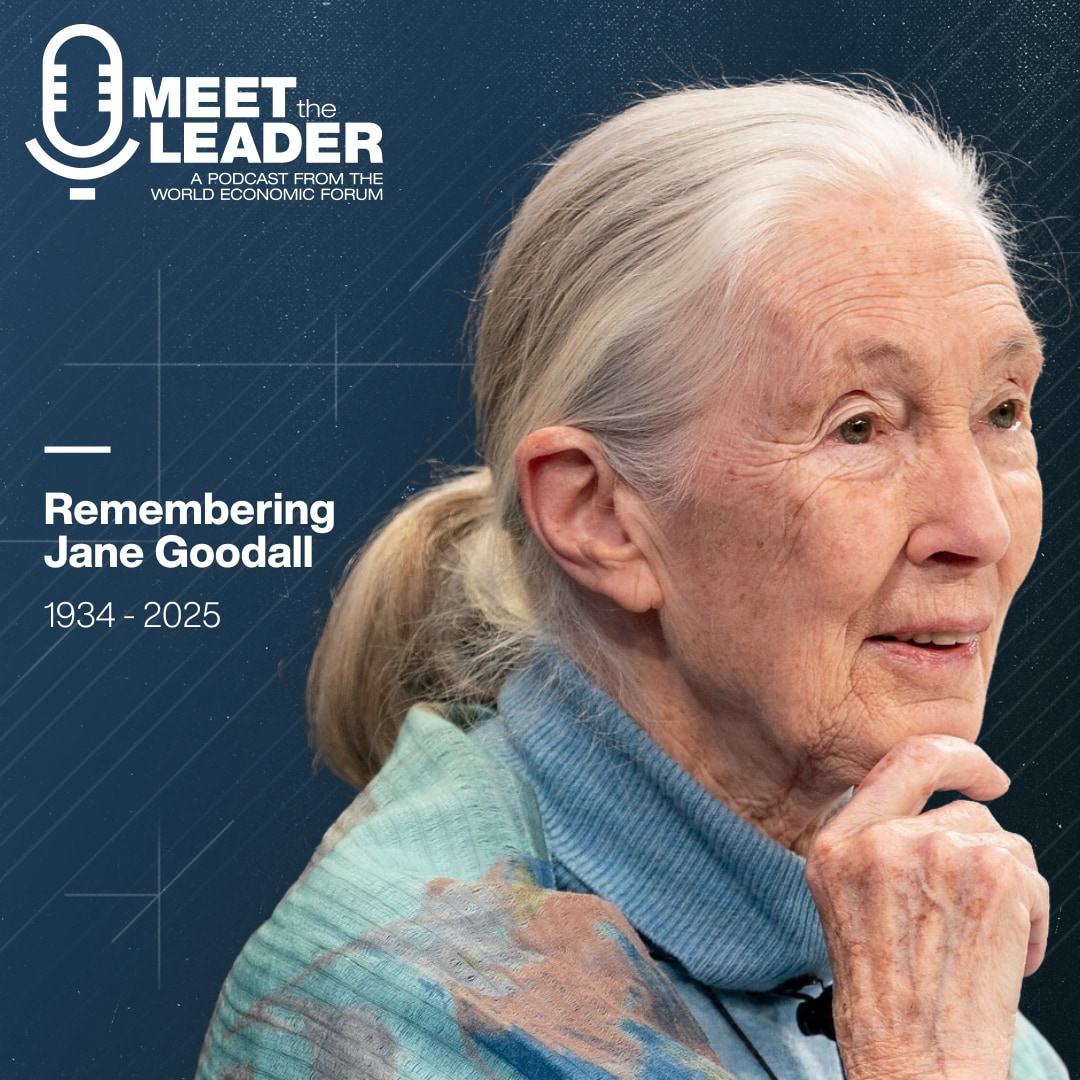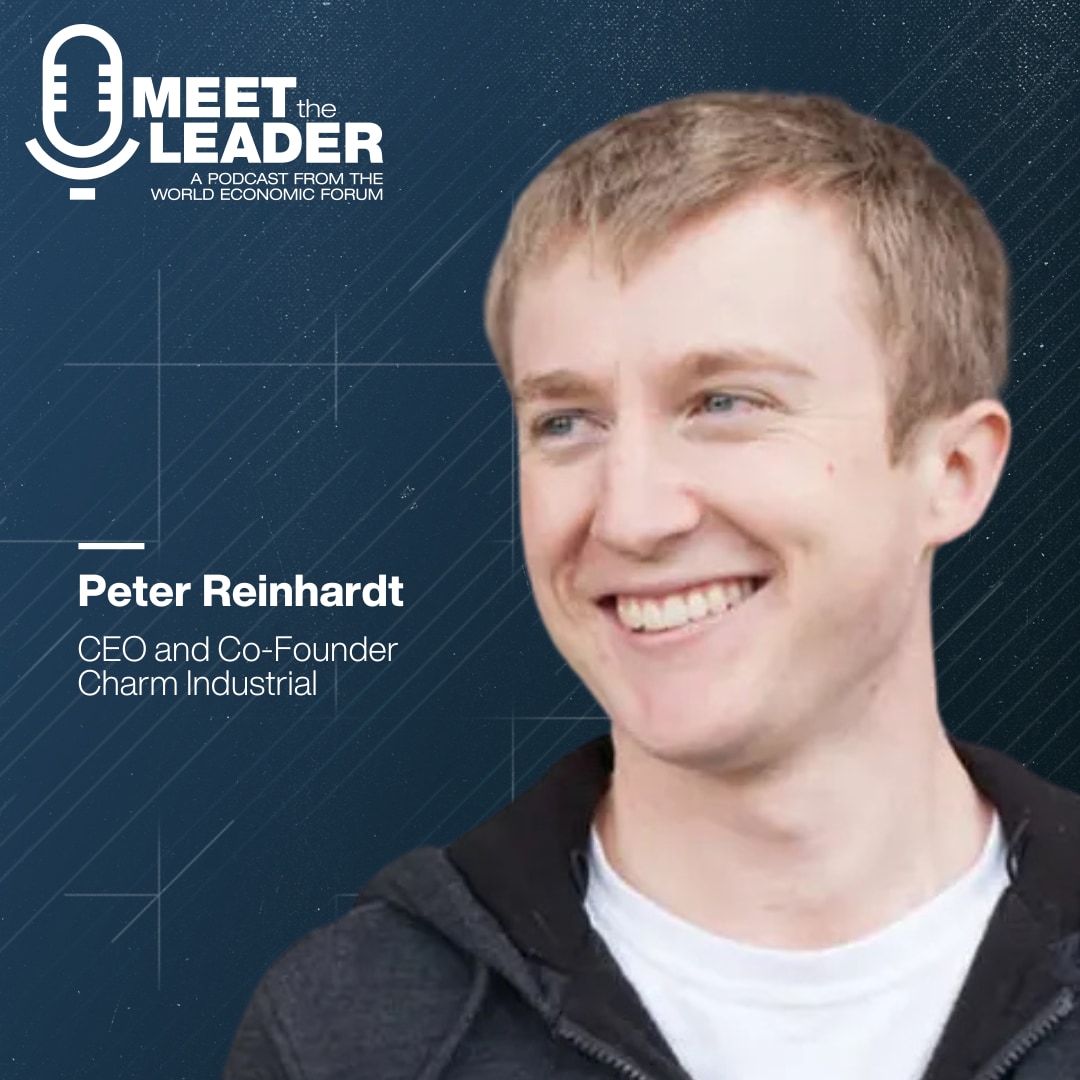This company launched with $600. How it’s using data and AI today to boost yields for millions of small-scale farmers
Getting the right information at the right time is critical for any sector but especially small-scale farming. Losing a yield could mean a farmer has no income for a year while weakening food security and local economies. To bridge these gaps, company Farmerline has created AI-powered tools, including one that acts like a “911 for farmers,” bringing critical information on weather, crop diseases and more on demand to people who need it, all in 34 languages. The company has also developed ways alternative data can be used to develop credit scores for farmers, helping prove the investing opportunity to lenders while connecting them to much-needed financing. With small scale farmers locked out of some of the biggest innovations in the last century thanks to access and affordability, founder Alloysius Attah shares what’s needed to ensure agriculture is future ready – including the power of a database that can create a national pulse on food security for NGOs, governments and the private sector. Attah also shares his company’s founding journey, what he’s learned in the past 10 years - and how global crises like COVID have helped him rethink how he prioritizes as a leader.
ポッドキャスト・トランスクリプト
Interview held in January 2025. Editor notes update statistics where applicable.
Alloysius Attah, Farmerline: The right timing is very critical. one of the biggest events that farmers look up to is when is going to rain, if you plant before it rains, you're going to lose your seed, if you lose your seed, that's almost losing your annual income.
The primary source of information for most farmers in rural areas is either radio or you have to wait for the government agriculture extension officer to come in and deliver information. That doesn't happen very often.
In some areas across Ghana, we already know that it’s going to be 50% less rain. This information helps governments. It helps NGOs and food companies and people like us to provide services like irrigation and advice to help farmers prepare for this adverse climatic condition.
These farmers are very critical to global food security. They feed one third of humanity. There'll be 9 billion of us on the planet. They have increased production by, you know, 70% or more to feed all of us. So, it is absolutely essential to make sure we get information in the language that they understand.
Linda Lacina, Meet The Leader: Welcome to Meet The Leader. I’m Linda Lacina and I am excited to introduce you to Alloysius Attah. He is the CEO and co-founder of Farmerline, and that uses special technologies and solutions to help small-scale farmers prosper. How are you, Alloysius.
Alloysius Attah, Farmerline: I'm well. Thank you for having me.
Linda Lacina, Meet The Leader: You grew up on a farm in Ghana. Can you tell us about it?
Alloysius Attah, Farmerline: It's actually quite common for people to grow up on a farm in Ghana if you don't grow up in the big cities. There's a very high chance that you're connected to small-scale farming. That was my story, too. I grew up in Ho. My auntie was a small scale farmer. So, I'd go to school on weekdays. And on the weekends I’d go to the farm and support. She grew maize, cassava and some vegetables as well.
Linda Lacina, Meet The Leader: And tell us what a day is like this. We can kind of get a picture of this. Some people had no idea.
Alloysius Attah, Farmerline: Most farmers like my aunt, they live in rural areas, in places without Internet access. They love to consume content in a language they understand. The primary source of information for most farmers in rural areas is either radio or you have to wait for the government agriculture extension officer to come in and deliver information. That doesn't happen very often. So most of these farmers rely on historic knowledge that has been passed down, from mouth to mouth.
These farmers are very critical to global food security. They feed one third of humanity. There'll be 9 billion of us on the planet. They have to increase production by, you know, 70% or more to feed all of us. So, it is absolutely essential to make sure we get information in the language that they understand.
Farmers are critical to global food security. They feed one third of humanity. It is absolutely essential to make sure we get information in the language that they understand.
Linda Lacina, Meet The Leader: And what sort of challenges do they face when they don't get the information that they need?
Alloysius Attah, Farmerline: One of the biggest events that farmers look after to is when it is going to rain. So, farmers actually wait -- when it's June – they wait for it rains to come before they plant, because only 5% of small scale farming is actually irrigated in Ghana, which means our small scale farmers rely on the rain to plant
Them knowing when it's going to rain is extremely crucial to the kind of yield that you're going to get. So, for instance, if you plant before it rains, you're going to lose your seed. Remember some of these seeds the farmers bought them with loans. So it's very critical that that seed germinates. So they wait for the rains to come. The plant, they have good yield. The rain doesn't come. The yield gets affected.
For instance, in some areas across Ghana, we already know that it’s going to be 50% less rain. This information helps governments. It helps NGOs and food companies and people like us to provide services like irrigation and advice to help farmers prepare for this adverse climatic condition.
Linda Lacina, Meet The Leader: And give people a better sense of the problems that can come to farmers if they that if they make the wrong decisions, that can be very disastrous, yes?
If they lose their seed? That's almost losing their annual income.
”Alloysius Attah, Farmerline: If they lose their seed? That's almost losing their annual income, especially for farmers that depend on their farm to feed your family and to pay for the expenses. Planting at a wrong time and losing like your seed means that either you’re going to have a reduced yield or you're not going to have any yield at all.
If farming is your primary source of occupation, which is true for most farmers across Africa, just planting at the wrong time means no food, no money throughout the year. Remember, a lot of farmers don't have money throughout the year. They often go for loans to then invest into their farm. Those loans are used to buy seeds and high-quality fertilizer. So the right timing is very critical. Getting the wrong information could mean that somebody is going to lose their income for a year. And that's really serious.
Just planting at the wrong time means no food, no money for a year.
”Linda Lacina, Meet The Leader: So why don't you tell us a little bit about Farmerline? What is it and how does it work?
Alloysius Attah, Farmerline: Farmerline was founded a decade ago, and it's a digital marketplace for small-scale farmers. And it does three main things: Number one -get information to farmers in a language that they understand; Number two - leverage the agriculture and climate data to attract more capital into small-scale farming; And finally, connecting farmers to market – market locally, but also market outside of the continent. That's what we do.
All this is digital. We end up with a lot of data that also helps large food companies that are sourcing from the continent to fulfill their sustainability goals, but also their compliance goals as well.
Linda Lacina, Meet The Leader: What are the impacts to having this technology? How does it help?
Alloysius Attah, Farmerline: From the perspective of the farmer, we've done research in 2023 and we realized that farmers in our network increase their yield and income 2.5 times as compared to farmers that are not in our network. The difference is the farmers in our network get access to information, high-quality fertilizer and seeds. And then we also connect them to market. Farmers that are outside of our network either have access to one of these or none at all. So just having the bundle of services increases yield and income by 2.5 times - that's on the farmers' side.[Since this interview, farmers in this network now see incomes increase by 3.3 times].
For the businesses, with the risk, using data and intelligence will also increase the ability to predict all the variables in the supply chain. So, ability to predict child labour, our ability to tell if a farm in your network is on deforested land. Other intelligence helps them to source better, but then also to comply with rules like the EUDR (the Regulation on Deforestation-free Products).
Linda Lacina, Meet The Leader: And your solution helps 2.2 million farmers? [Note: Since this interview, this number has grown to 2.5 million]
Alloysius Attah, Farmerline: Yes, 2.2 million farmers. We work with 3,000 partners in 50 countries around the world. We've digitized 3.2 million acres of small farms. [Note: Since this interview, this Farmerline has grown to 3,200 partners in 55 countries and has now digitized 4.5 million acres..] Basically what that means is that we can tell what's happening on the farm. We can tell the regenerative farming practices that's happening on the farm. We can tell the soil condition. We can tell the above-ground carbon stock based on the practices that are happening as well.
Linda Lacina, Meet The Leader: You mentioned that this is something that's available in their local language. Can you talk a little bit about that? Maybe even let us know, like the full span of languages that that that are available and how important is.
Alloysius Attah, Farmerline: That specific tool -- We call it Darli AI. It is a 911 for farmers. It speaks 27 languages; 20 of those languages are African. [Editor's note: Since this interview, this tool now speaks 34 languages tole, 27 of these being African languages.] The reason why it is very critical is a lot of the AI innovations that are coming out, they have yet to prioritize the 3,000 local languages that are spoken in Africa and other emerging markets. Darli delivers information in a language that people understand. So we support in Ghana, for instance, Twi, Ewe; in Kenya, Swahili; in Nigeria, Yoruba. Research shows if you give information to people in a language that they understand, adoption goes up by up to 60%. So, just by merely giving information to farmers in a language they understand, they are able to adopt.
Another thing also that Darli does is that it takes that information and makes it available on demand. So a farmer can get information in the night, whether there's rain, the sunshine, whether there is an extension officer or not, they can get access to that information as well.
The final thing that Darli does is also helping to detect crop diseases offline for about 10 major crops in Africa. So cassava, which a major staple, cocoa, coffee and many others. So, an extension officer can go into the field, take pictures of what is happening on the ground, and in real-time know the disease that is there and also make recommendations. This is something that didn't exist at least at scale on the continent. And we built that. And the goal is to make sure that farmers get all the information that they need. And that they also get the support, the human support, from the extension officers as well, to make sure they can grow high-quality food that also takes care of the environment.
Linda Lacina, Meet The Leader: How is Farmerline leveraging artificial intelligence?
Alloysius Attah, Farmerline: Farmerline leverages artificial intelligence in three main ways. Number one is we taught AI to speak African languages and then we taught it how to provide agronomic advice. Time magazine named our innovation one of the best inventions of 2024.
We also leverage AI to accelerate more financing. Only 12% of commercial lending goes to agriculture in Ghana, largely because most of the financial institutions still require some form of collateral to finance farmers and agribusinesses. But there's a lot of information that farmers generate: information on their yield, information on their historic sales. All that information can give anyone a view on the opportunity, but also the risk in financing. The idea of using alternative data sources to finance is not new. [US data analytics company] FICO has been doing it for years. We are basically just bringing that to agriculture. So we use climate data, agricultural data, information about the farmer, the agribusiness, people who are buying from them to show the opportunity and then the risk and get more financial institutions involved. We're very happy to report that many local financial institutions are now lining up to work with us, to finance our customers directly off balance sheet. And for us, that's a win, and we are very proud of that.
All the things that we need to grow good food or to take care of the environment have been invented over 100 years ago. The challenge is access and affordability.
”Linda Lacina, Meet The Leader: Why is it so important?
Alloysius Attah, Farmerline: Access to capital is very important. All the things that we need to grow good food or to take care of the environment have been invented over 100 years ago. The challenge is access and affordability. So, organic fertilizer has been invented many, many years ago. High-quality seeds, solar irrigation, all these things are already there. We know that if you give irrigation to farmers, they can increase their yield and increase their income by multiple folds. The challenge is their ability to afford it. The financing schemes don't support them very well. Farmers have money maybe 6 months out of the 12 months in a year. So, making sure that we have flexible financing, not just affordable, flexible financing, that is tied to their seasonality, goes a long way and drives adoption. And when they adopt, impact happens, right? Teaching them, giving them the money to grow the food, but then also connecting them to markets so they can make money as well.
Linda Lacina, Meet The Leader: How would things have been different if you had a tool like this when you were growing up, or how things have been different even for your auntie?
Alloysius Attah, Farmerline: I remember one story. My auntie used to grow yams. So one time we went to the farm my village was celebrating the Yam Festival because we grow Yam a lot. It was almost near harvest. She worked really hard. Got the right fertilizer, got the right seeds, grew the yams. When it was time for harvest, she lost it to pest and disease attack. She just was not in a position to predict that. Those, you know, those pests and diseases were going to affect the yam and it was going to cause it to lose a yield. I remember her crying. Some of those images stay with me. If my aunt were to have a solution like Farmerline, Darli, 911 for farmers, leveraging climatic data agriculture data, she would have had some point of view. She would have gotten some level of warning that would have given her a chance to respond.
Her tears was because of the potential loss that she was going to suffer. Her tears as was loss on in income. Her tears was loss in status. She was the best young farmer in our village growing up. She won awards multiple times. Her losing her yams because of pest and disease attack means that she's not going to have the best yams. Those tears were loaded and it stayed with me. It's been 25 years now. I still remember the story very clearly.
Those tears were loaded. It's been 25 years now. I still remember the story very clearly.
”Linda Lacina, Meet The Leader: Was there a turning point moment for you?
Alloysius Attah, Farmerline: My auntie played a big role in my decisions to start Farmerline, But not for the reason I just described. She always made me believe that I was destined to do something great. And she made me believe that once I finished college, you get a job. Then you can take care of us.
When I finished college, I saw an opportunity to do both: create a service that can help her and then also make money at the same time.
Linda Lacina, Meet The Leader: What made you what was the moment that you decided, hey, this is a problem and I'm the one to solve it?
Alloysius Attah, Farmerline: Another moment was when I got my first computer ever in my life, 2009. I was in college. One of the moments and in the final one was when Sir Tim Berners-Lee's Foundation [World Wide Web Foundation] was training young coders in Africa how to use digital tools to solve problems. So, I went to that training. That's where I met my co-founder, Emmanuel Owusu, and in the access to use all the new skills and tools that we've learned to solve a problem that we care about. I didn't know I cared that much about agriculture. I do now because of my aunt. But, you know, that's how I got into it. I didn't hesitate. Why am I here? Let's create a solution that helps people like my aunt to make money from their farming. Because I know we talk to farmers. They want to create wealth. You know, they want to grow more food. They want to create wealth. And because I know my aunt was that we wanted to create wealth. I saw an opportunity to create a solution that could help her to make money. And we didn't have all this solutions at once. We started with an information service and then over time evolved into a financial platform that uses your data to finance fertilizer and seeds and also then connecting them to market as well.
Linda Lacina, Meet The Leader: And you started it with $600? Where did that $600 come from? Savings of whatever. Did you and your co-founder pool it and then what did you spend it on?
Alloysius Attah, Farmerline: The bootcamp that I mentioned. Our idea was the best idea and they gave us $600 from the in the coding bootcamp that was organized by Mobile Web Ghana and set in Tim Berner-Lee's Foundation, the Worldwide Web Foundation. It may seem like something small, but for us it was it was a seed that bears something that has gone on to raise millions and millions of dollars that were going to attract funding from the likes of my FMO acumen or Go Credit, Ripple Works and allies like, you know, joined a mission.
Linda Lacina, Meet The Leader: Was there a moment in running for your life and getting started where you hit a wall? All entrepreneurs do. There's a moment in the, gosh, I don't know how we're going to go forward after this. What was it like for you? What was a wall you hit?
I've never built a business through a global crisis before. So COVID was a weird moment where the harder you worked the worst things got right
”Alloysius Attah, Farmerline: The walls we hit were in 2021 and 2022. The first one was COVID. You know, this is my first job. Never worked for anyone. I've never built a business through a global crisis before. Right. So it was a weird moment where the harder you worked the worse things got right. COVID made like, you know, cost of financing go up. You know, supply chains were disrupted. But like looking back, I'm very proud of how our team responded. We doubled down. We got like, people were like, 'hey, slow down," but we doubled down. We grew.
Another one was when, you know, the Russia-Ukraine conflict, it seemed so distant, but it's actually really connected. When that happened, the price of it. You know, Africa is a net importer of fertilizer. When the conflict started, the price of fertilizer tripled, which meant our farmers couldn't afford it, which means that for us as a business, margins had reduced. And we just like close to venture capital, raise all this money to work. So it was one of the most challenging moments because the way I knew to respond to challenges as a leader was just to work hard. And when it came to macros, like no moment of like your personal hard work could change your currency's performance against a dollar. No, no amount of my hard work, which could change inflation. That was like, you know, 40% of the time. No amount of hard work could change the price of fertilizer on the market. So it was an incredibly difficult time. I actually got burnt out as a result of just like pushing. But I'm smarter now as a leader. And at that time we're caught unaware and we reacted. But this time we have time to go to our investors and shareholders. We have enough systems and processes in place to respond to any global challenge that may come up again in future.
It was one of the most challenging moments because the way I knew to respond to challenges as a leader was just to work hard. But no amount of my hard work could change inflation.
Linda Lacina, Meet The Leader: What are some of these systems and processes?
Alloysius Attah, Farmerline: Like the first thing is just like realizing that agriculture's like solving the problem of agriculture is a team sport. It's not going to take one company like Farmerline to solve it is going to require government to play their role. For the first time in a decade, we've had governments talking about Ai for agriculture and large food companies like Nestlé and Cargill all having this conversations at the same time. And, you know, just talking about it, they are willing to put in resources, like heavy resources, behind it. So for us, that it is just, it means that we didn't have to build a rail line and then build the train at the same time. Let me explain. We didn't have to go digitize all these farmers and train all the farmers. We can collaborate in government to have a national farmer database. We can collaborate with government to have a 911 one for farmers, and we can just leverage that just like how hospitals I was use 911. Like they didn't have to build it themselves. They just use a shared public infrastructure.
The other thing also is working with local financial institutions, making the business case with financial institutions. See the hey, when you pour money into agriculture you can get your money back and the opportunity is huge. And we will work if you to de-risk, any risk that exist. Also working with large food companies as well. They care about farmers and your Supply chain, especially for the cocoa, coffee. They buy a lot of it from the continent. They want to work with companies like Farmerline. So for me, this is like a great time to be alive, to see everything that we've prayed for the last decade come together. Governments are stepping up and willing to do their part. Large food corporations also willing to do their part. And they are willing to work with ag-techs like Farmerline to help de-risk, to help improve predictability, to help support the farmers, but more importantly, doing it in a way that is good for the farmers. Increase the farmers' income, but it also protects the environment at the same time.
Linda Lacina, Meet The Leader: You mentioned a database of farmers. Did Farmerline collaborate with the government to create a database?
Alloysius Attah, Farmerline: We are working on that right now. We've proven that we can digitiize 2.2 million farmers. [Since this interview, Farmerline's reach has grown to 2.5 million farmers.] We've proven that we can launch a national health plan that has that has sent about 8 million messages to farmers. And we have data of100,000,000 seconds of interactions. Farmers calling, asking questions, learning, expressing their frustration. All of that sits on our server. We are we are heading into the age of AI. We are heading to the future of predictability. We are leveraging all the information to help governments, right? So for instance, we met governments from Togo, from Rwanda who are who are asking for these solutions for the first time in a very long time. So our hope is to getting some of these partnerships and create a win-win solution that actually helps the farmers to, one, have an active national database -- a database that's alive that can tell what farmers are growing, where they are growing, who they are. What was the size of your farm? Like basically having like a national pulse on your food security? Yeah, those are some of the things we are doing governments are on the continent here.
Linda Lacina, Meet The Leader: And how will that help, say, in the next crisis if there was another issue with spiking in fertilizer prices? How would a database of you know all of where all the farmers and everything is going? How would that help you?
Alloysius Attah, Farmerline: We've seen some of the global fertilizer companies that are asking about building factories on a continent. Having information on what farmers are growing gives you a view on the amount of fertilizer they are going to use. Having information on the soil and then the nutritional components of those soil gives you a view on how to compose your fertilizer as a manufacturer, right? So that database can drive investment. Today, it is really, really hard to do. Today If you want to build a factory to build fertilizer in Africa, you need to hire consultants to go to the ground. But we have enough data that I can give some preliminary information to people that want to manufacture this fertilizer in the country.
If it is manufactured in a country that could get a price down by up to 30% because rememner the biggest cost drivers of fertilizer as being transportation. That transportation is charging US dollars every time a look in a currency performance bad against a dollar. That means that the price of fertilizer is going to go up automatically, which means yield may go up or go down and the price of food in a country is also going to go up as well.
Linda Lacina, Meet The Leader: Is there a piece of advice you've always been grateful for?
Alloysius Attah, Farmerline: I mentioned something about solving the problems of agriculture being a team sport. That's something I have to remind myself every single day. And forming strategic partnerships that are win-win goes a long way. So agriculture is a team sport. Forming strategic partnerships with all stakeholders. A win-win strategic partnership goes a long way in building a team that allows us to give ourselves a fair chance in solving some of the major problems that we are facing in agriculture.
Linda Lacina, Meet The Leader: What should leaders prioritize?
Alloysius Attah, Farmerline: Wellness. Leaders should prioritize wellness -- wellness for themselves when it's for the employees, wellness of their businesses. I've learned the hard way, and this is what I'm choosing to do in 2025. I'm still ambitious. I'm still going, going for good, still working hard. But I know my No. 1 priority is that, you know, you can't do anything about the future if you don't get there. So take care of yourself and give yourself a chance to be well and be part of the future and contribute to, you know, the solutions that the world needs.
Linda Lacina, Meet The Leader: Thank you very much and thank you so much to our listeners and our viewers for being your podcasts. Go to the World Economic Forum's YouTube page for more podcasts and transcripts through our website at wef.ch/podcasts.

